What a terrible combination
The weird and gut-wrenching relationship between daughters and mothers
It’s Mother’s Day weekend to all those who celebrate and mourn. I never had a good outlook on social media during parental holidays especially Mother’s Day. It’s sort of depressing. I tend to get envious of people who have healthy, lively relationships with their mom. I'm an only child, raised entirely by my single mother. It wasn't until my mid-twenties that I completely understood my mother's sacrifice and devotion in raising me to make sure I lived a good life. It wasn't until I moved to New York City in 2016 that I discovered I had a supportive mother, although she showed it in peculiar and subdued ways.
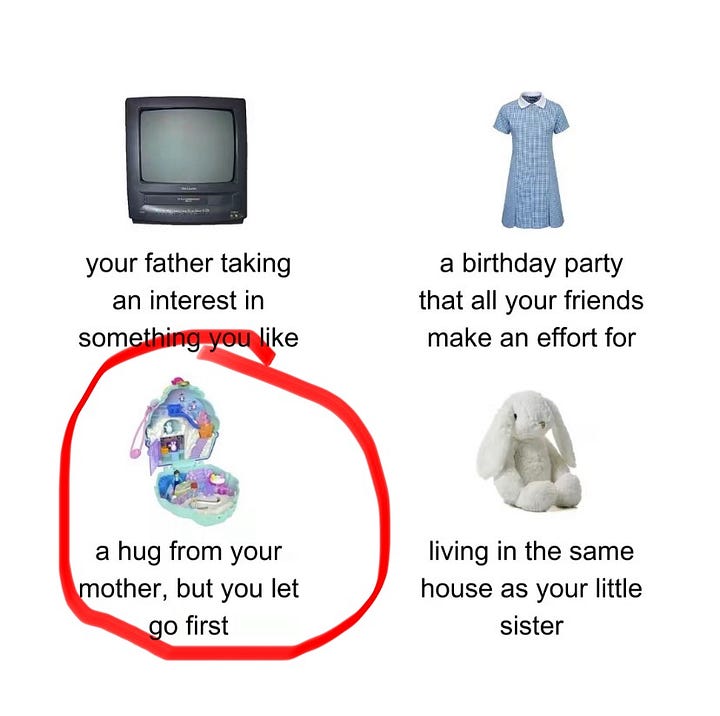
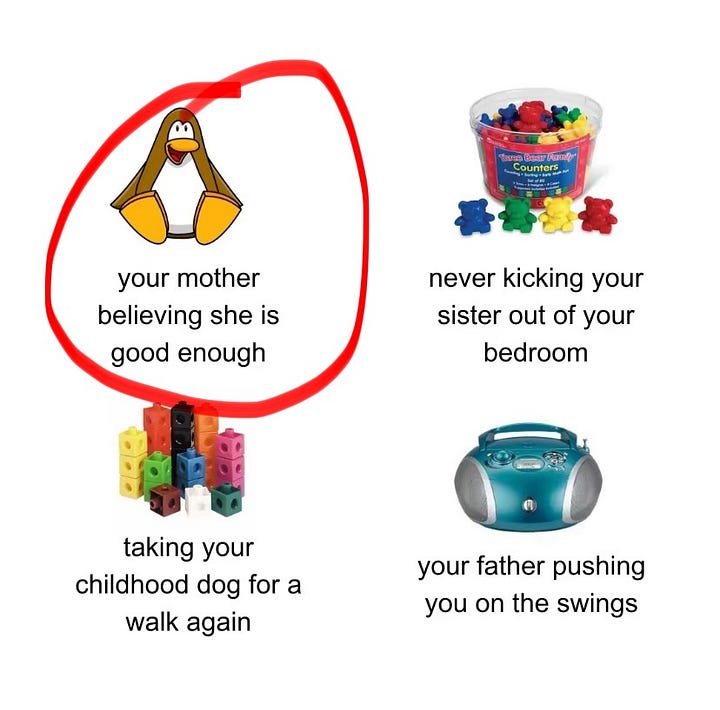
Aside from that, I devour any form of media relating to a strange, complex, confusing, and melancholy relationship that exists between a mother and her daughter. I find myself drawn to stories that explore the intricacies of the mother-daughter relationship, seeking solace and understanding in the fictional portrayals of this bond. These narratives often provide me with a sense of validation, reminding me that my own experiences with my mother are not confined to me and that others also struggle to navigate the complexities of parental relationships. These stories serve as a mirror, reflecting back to me the highs and lows of my own relationship with my mother.
In my second year of living in New York City, I watched News From Home for the first time. Throughout the movie, Chantal Ackerman's mother frequently asks why her daughter hasn't written back in a while. My mom also wrote me several letters throughout the first few months of my move to NYC, so these scenes remind me of my very, very unhappy first year. She told me how much she missed me and that I should always stay in touch with her, even if I were two thousand miles away. For whatever reason, I rarely replied with the excuse that I was "too busy" or "didn't have stamps." Despite my lack of response, my mother continued to write to me faithfully, just like Chantal Ackerman's mother in the film.
My mom never owned a cell phone and never texted, so our only means of communication was letters (or sometimes phone calls from her landline). The letters are still with me today; they are stashed away in a box on my closet shelf. I still can't bring myself to read them.
For my 29th birthday two years ago, my friend Devan gifted me with the book My Mother Laughs by Chantal Ackerman. I've read it multiple times since then, but each time it is intriguing to see the passages that I underlined the first time around.
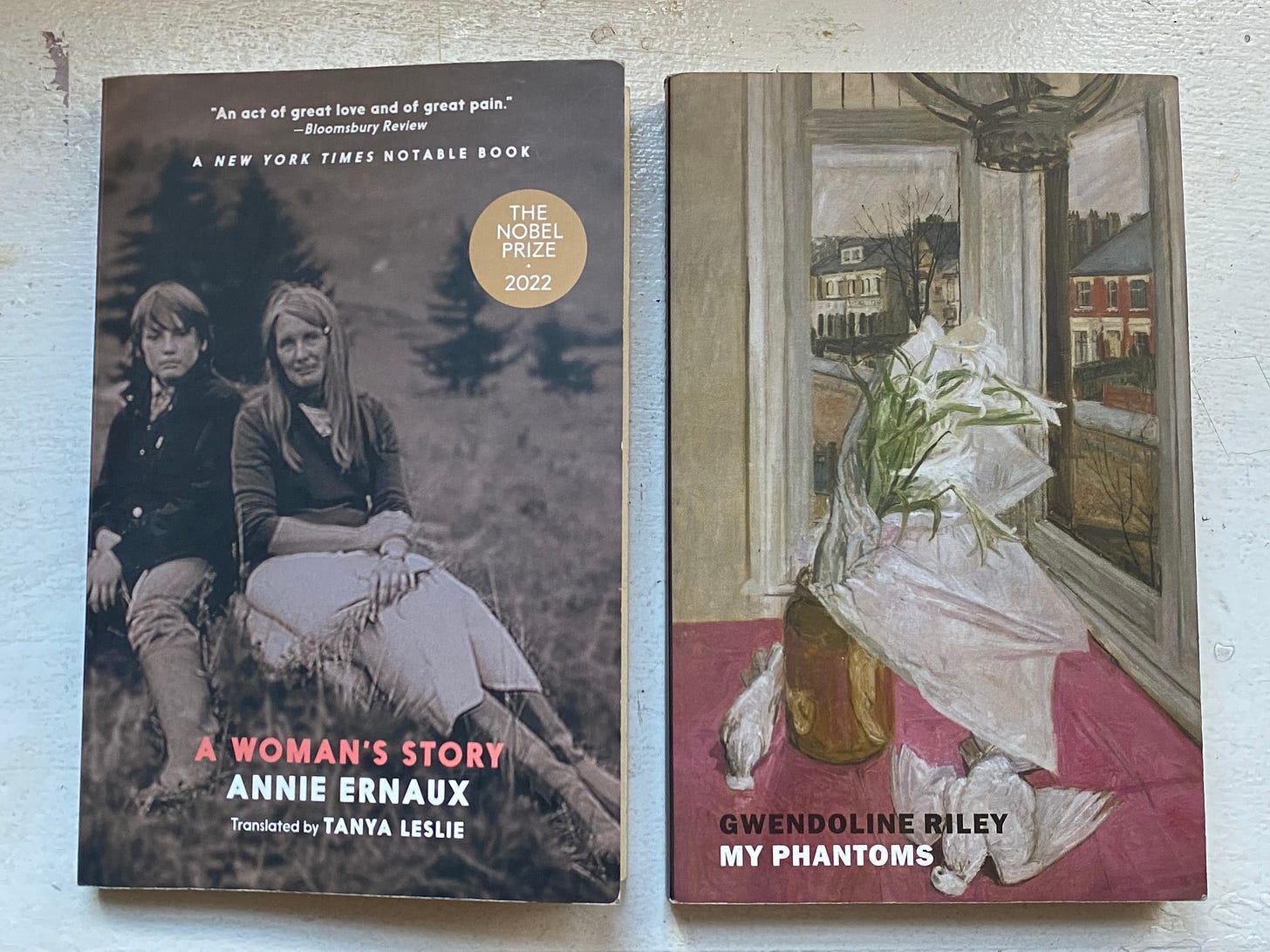
When I read Annie Erneaux's brutally honest A Woman's Story for the first time in 2023, I was moved to tears, and I knew right away that it would become one of my favorite books. Erneux delves deeply into the shaky yet enduring connection between herself and her dying mother, the worlds that separate them, and the unavoidable reality that we all lose the people we love in the end. I constantly recommend this book to those who ask me for reading recommendations or who just need a good, heartbreaking cry. The book is just ninety pages long, or less than two hours if you listen to the audiobook version here on Spotify (if you’re interested).
My Phantoms by Gwendoline Riley, my first book of the year, took me around two days to read through. Riley's narrative of a broken familial bond struck me profoundly even though it did not move me to tears the way A Women's Story did. This book review I read in the Los Angeles Times pretty much sums it up perfectly:
My Phantoms does focus on aging. It deals, in fact, with the unsaid, perhaps the unsayable. It plumbs the depths of the most terrifying realization of adulthood — not that our parents will die but that they will die without us having known them at all.
— Los Angeles Times Review on My Phantoms
I guess I can relate to My Phantoms' narrative in many ways. My mom has always been a quiet, hardworking woman. She was never the first person I wanted to confide in when I was growing up, either for advice or to ask questions about issues in life. Since my mother was an older mom when she gave birth to me in her late forties, we were never really able to truly understand one another. I still don't know a great deal of information about her. I treasure every bit of information I can learn about my mother, including the fact that she enjoys listening to Celine Dion and Anne Murray music and that her favorite flower is an orchid.
Mother Of Mother's Day
The carnation is the official Mother's Day flower. The celebration of Mother's Day, which honors all mothers and their sacrifices for their children, only spread across the country in the early 1900s, due to activist Anna Jarvis. Throughout Anna's youth, she heard her mother express her desire for someone to one day construct a monument for all moms, living and dead. Anna's mother passed away in 1905, and she promised at her grave that she would be the one to make that dream come true. Her mother loved carnations, so she gathered hundreds of them for her funeral. Over the years, she began a never-ending campaign to persuade governors in every state to establish the second Sunday of May (the closest Sunday to her mother's death anniversary) as Mother's Day.
The inaugural Mother's Day service was held one morning in 1908 at St. Andrew's Methodist Church in Grafton, West Virginia. A legislation recognizing the holiday was established by West Virginia two years later, and other states soon followed. She continued to compose letters and travel at her own cost to establish Mother's Day as a nationwide holiday. On May 8, 1914, Congress approved legislation declaring the second Sunday of May as Mother's Day. The following day, President Woodrow Wilson signed a proclamation establishing the first national Mother's Day.

The holiday expanded worldwide, but not in the way Anna was expecting. She spent the following few years criticizing flower shop owners, card makers, and the candy business for benefiting from the holiday. In 1922, Jarvis called for an open boycott of florists who hiked the price of white carnations every May. "They're commercializing my Mother's Day," she complained in a letter to newspapers, according to a 1986 Washington Post story. "This is not what I intended."
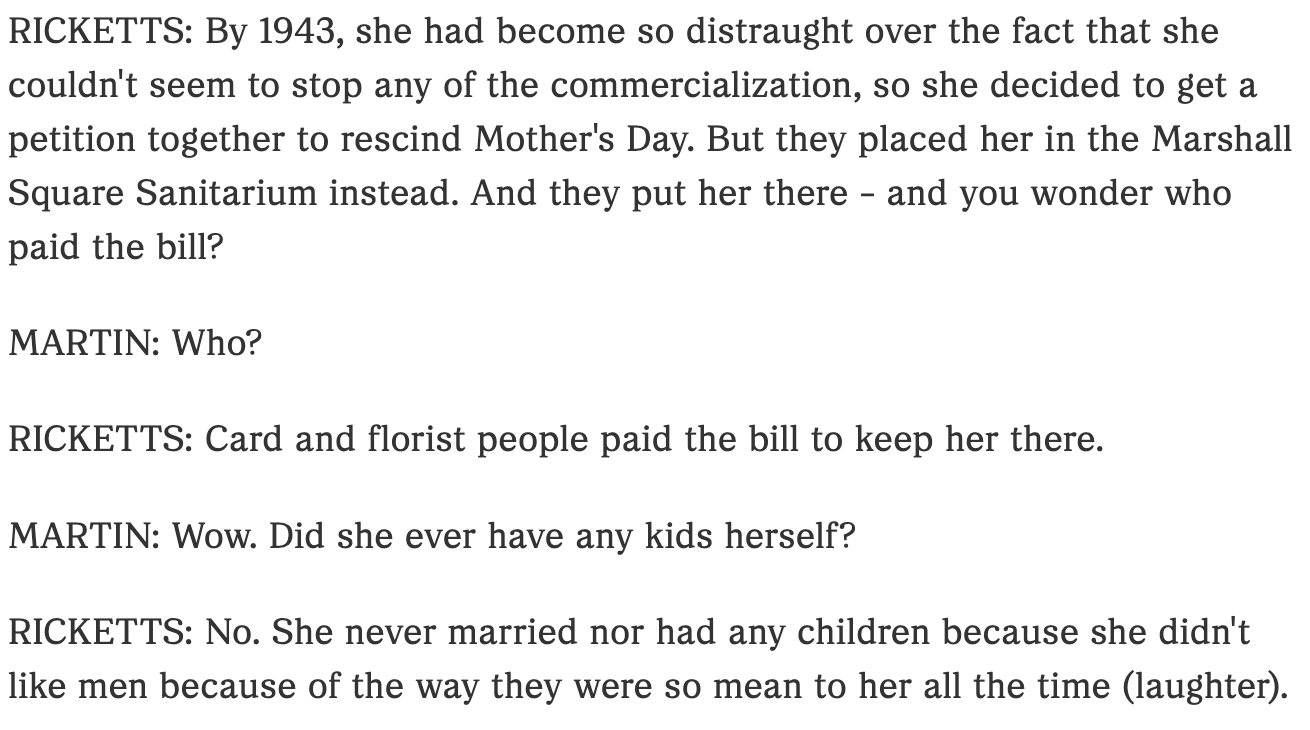
The Carnation
“Its whiteness is to symbolize the truth, purity and broad-charity of mother love; its fragrance, her memory, and her prayers. The carnation does not drop its petals, but hugs them to its heart as it dies, and so, too, mothers hug their children to their hearts, their mother love never dying.” Jarvis explained in a 1927 interview.

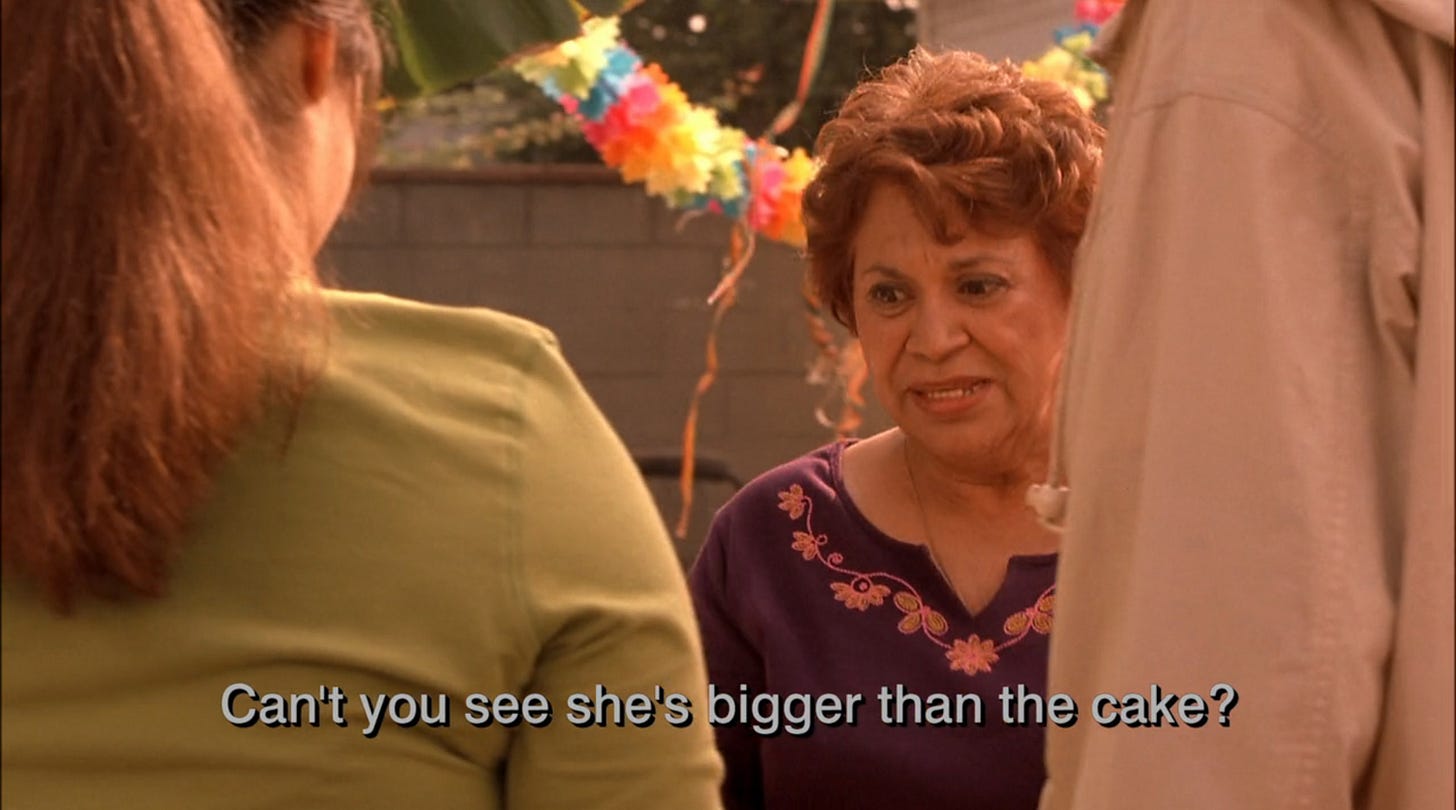


Love,
Iris
Films mentioned in order:
Autumn Sonata (1978) Dir. Ingmar Bergman
Steel Magnolias (1989) Dir. Herbert Ross
News From Home (1977) Dir. Chantal Akerman
Uptown Girls (2003) Dir. Boaz Yakin
Mermaids (1990) Dir. Richard Benjamin
Priscilla (2023) Dir. Sofia Coppola
Horse Girl (2020) Dir. Jeff Baena
Real Woman Have Curves (2002) Dir. Patricia Cardoso
Lady Bird (2017) Dir. Greta Gerwig
Orphan (2009) Dir. Jaume Collet-Serra
Pearl (2022) Dir. Ti West
The Little Mermaid II: Return to the Sea (2000) Dir. Jim Kammerud, Brian Smith
Turning Red (2022) Dir. Domee Shi
Kiki’s Delivery Service (1989) Dir. Hayao Miyazaki


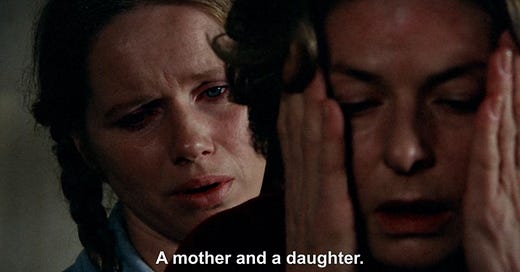


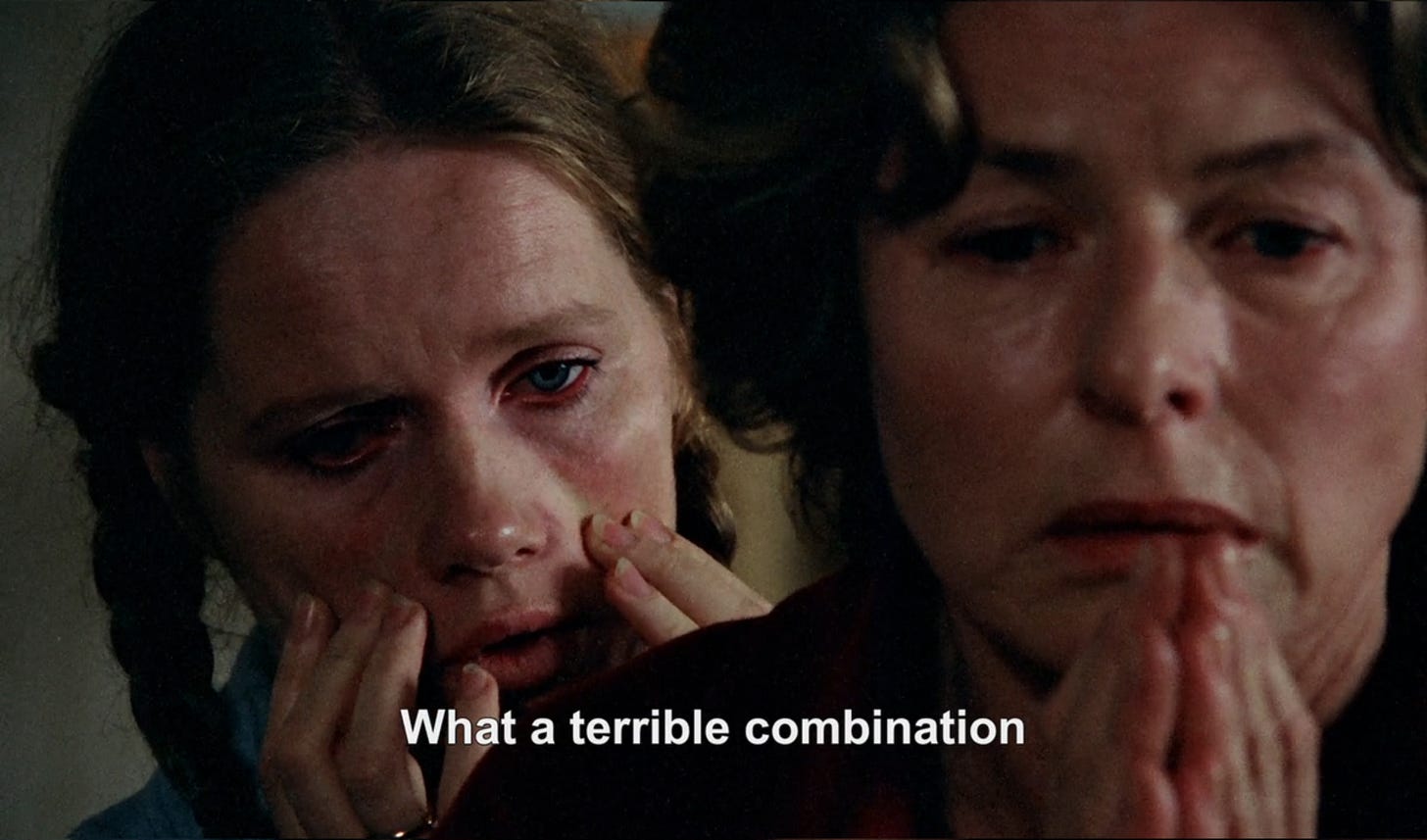


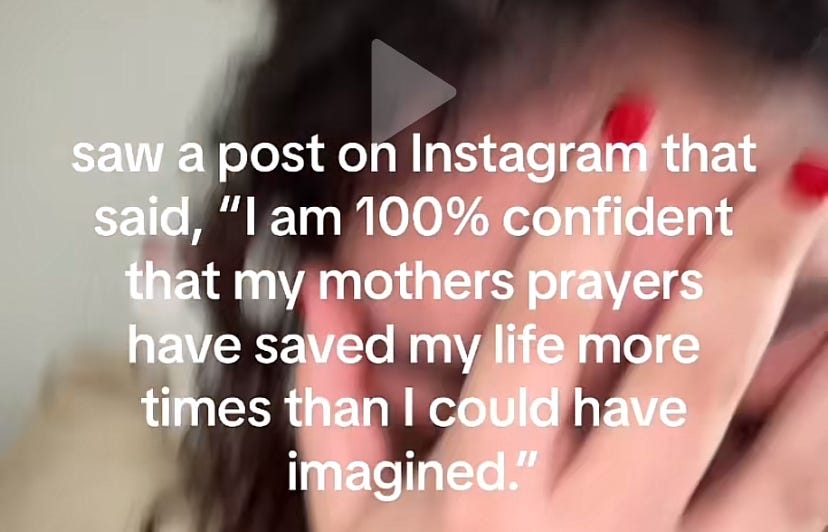

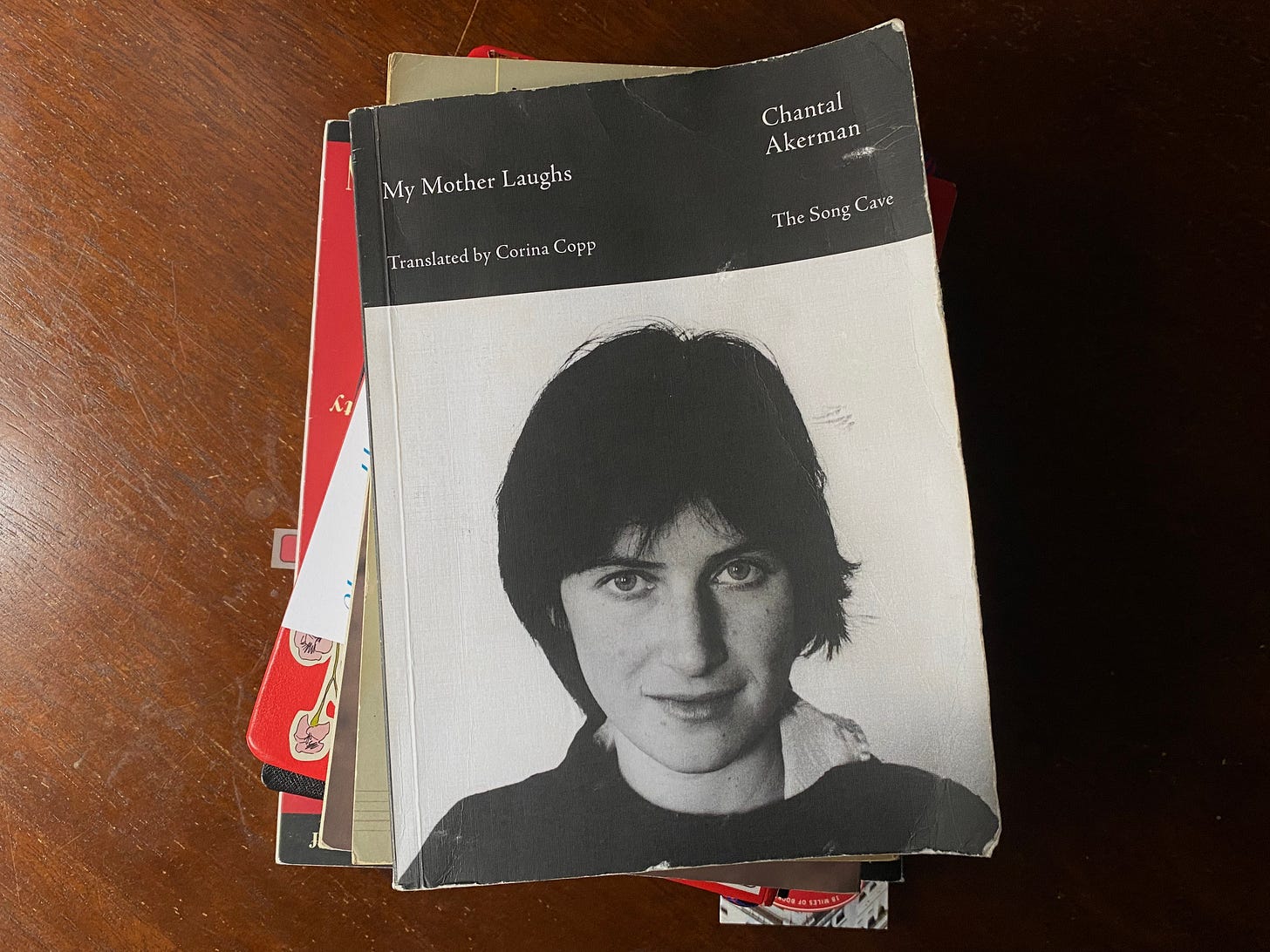




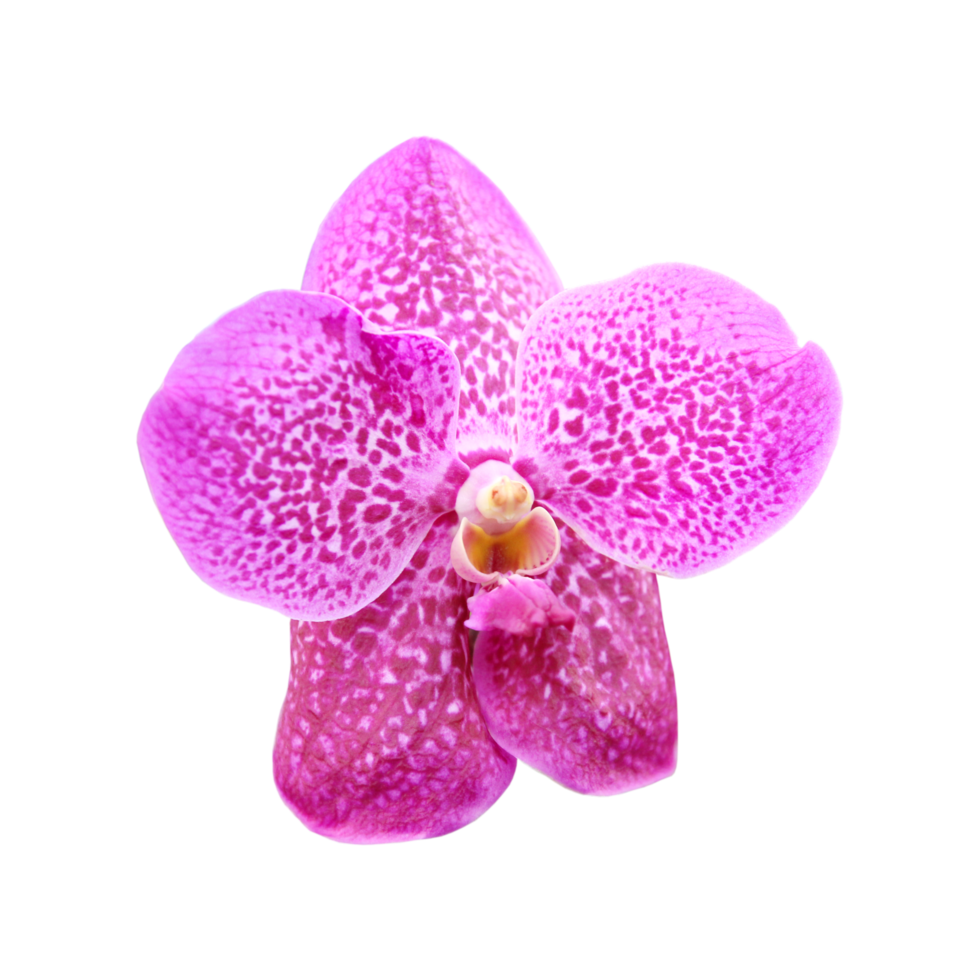







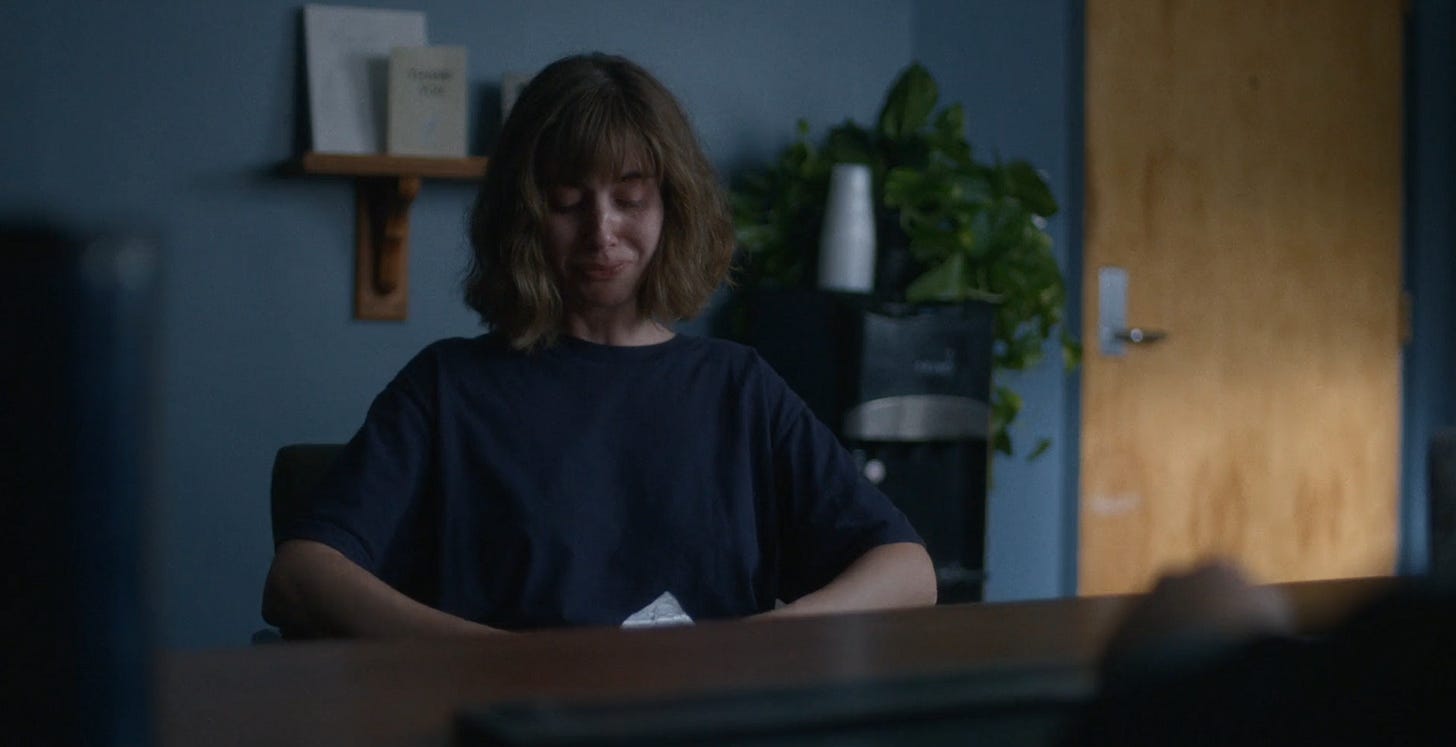
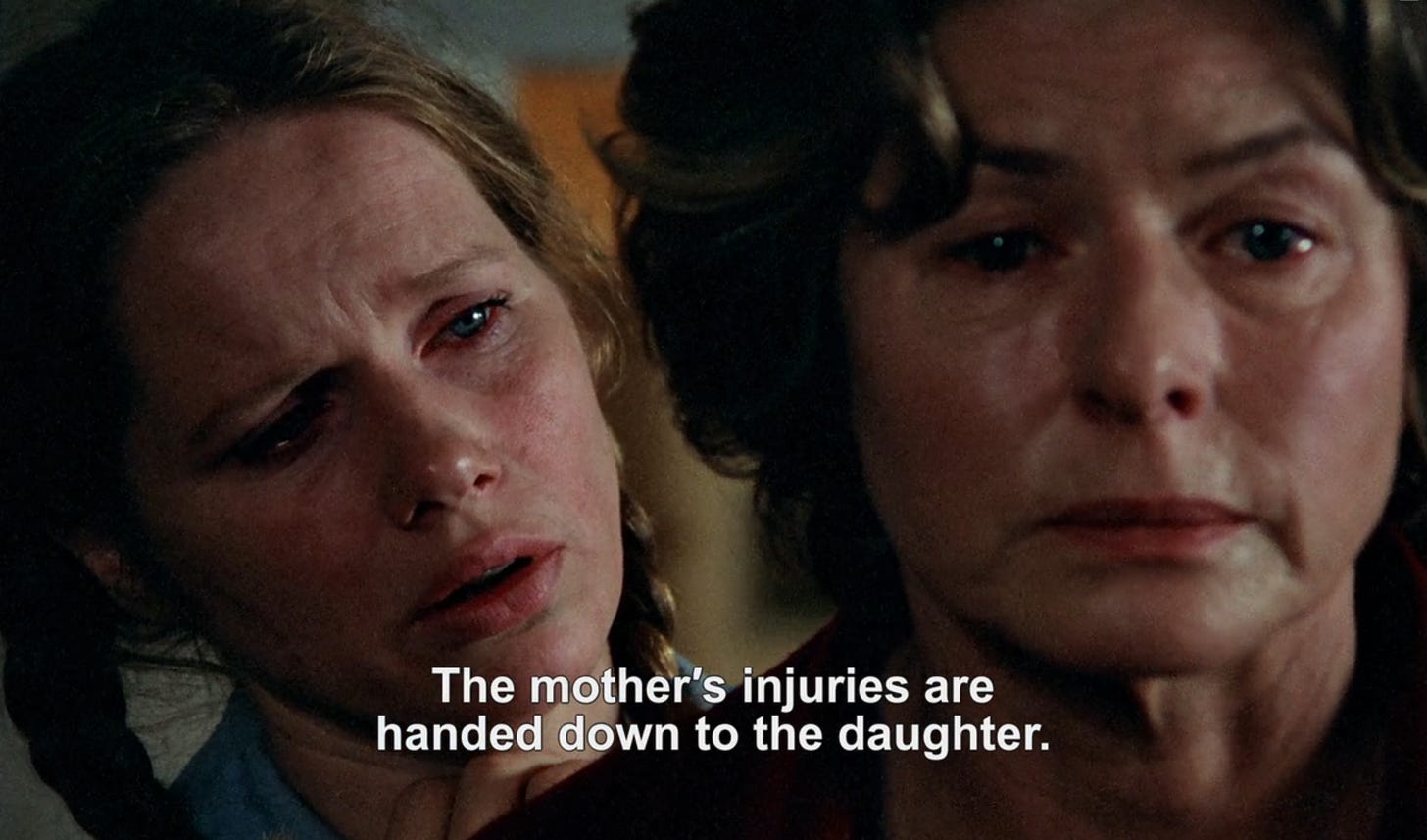
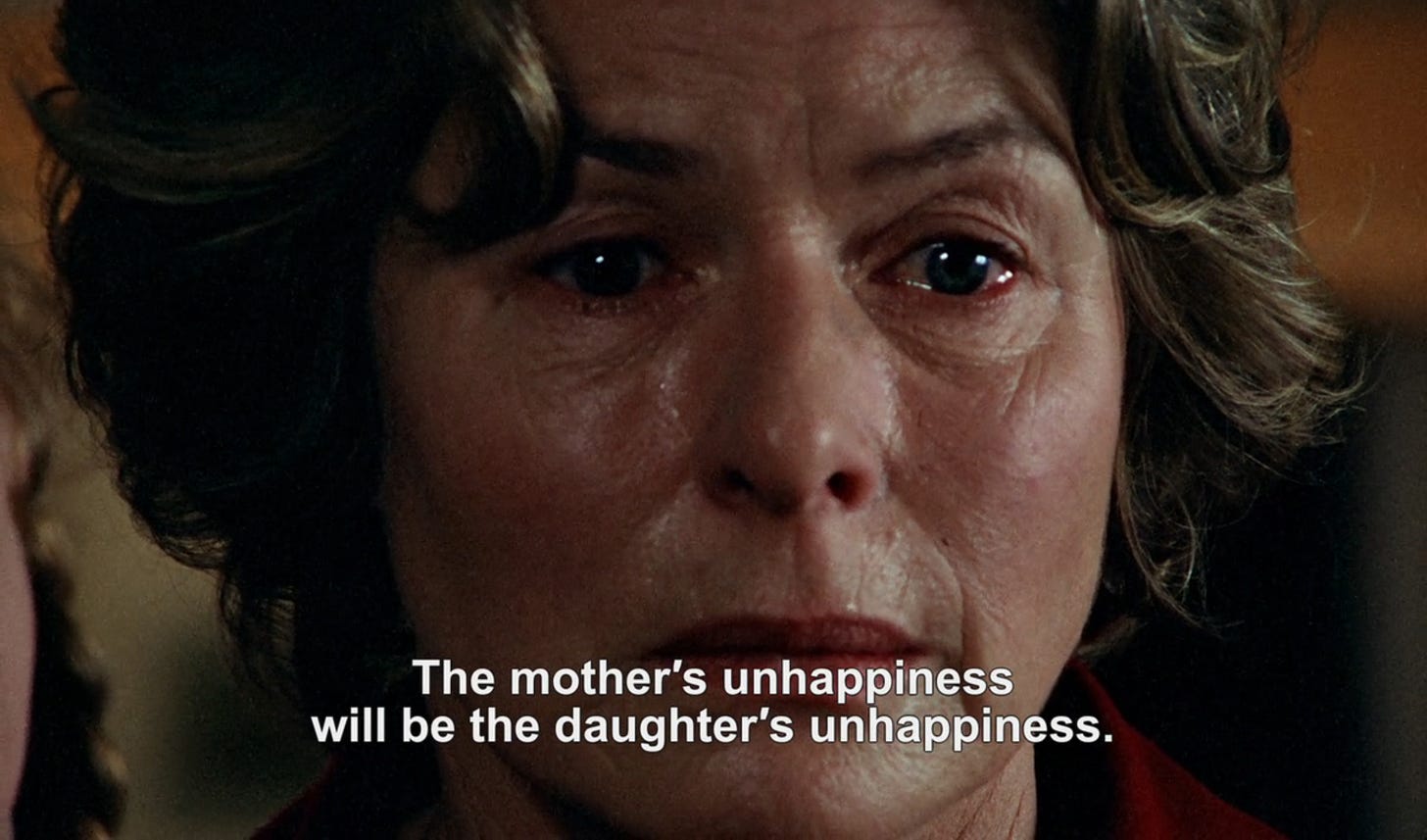
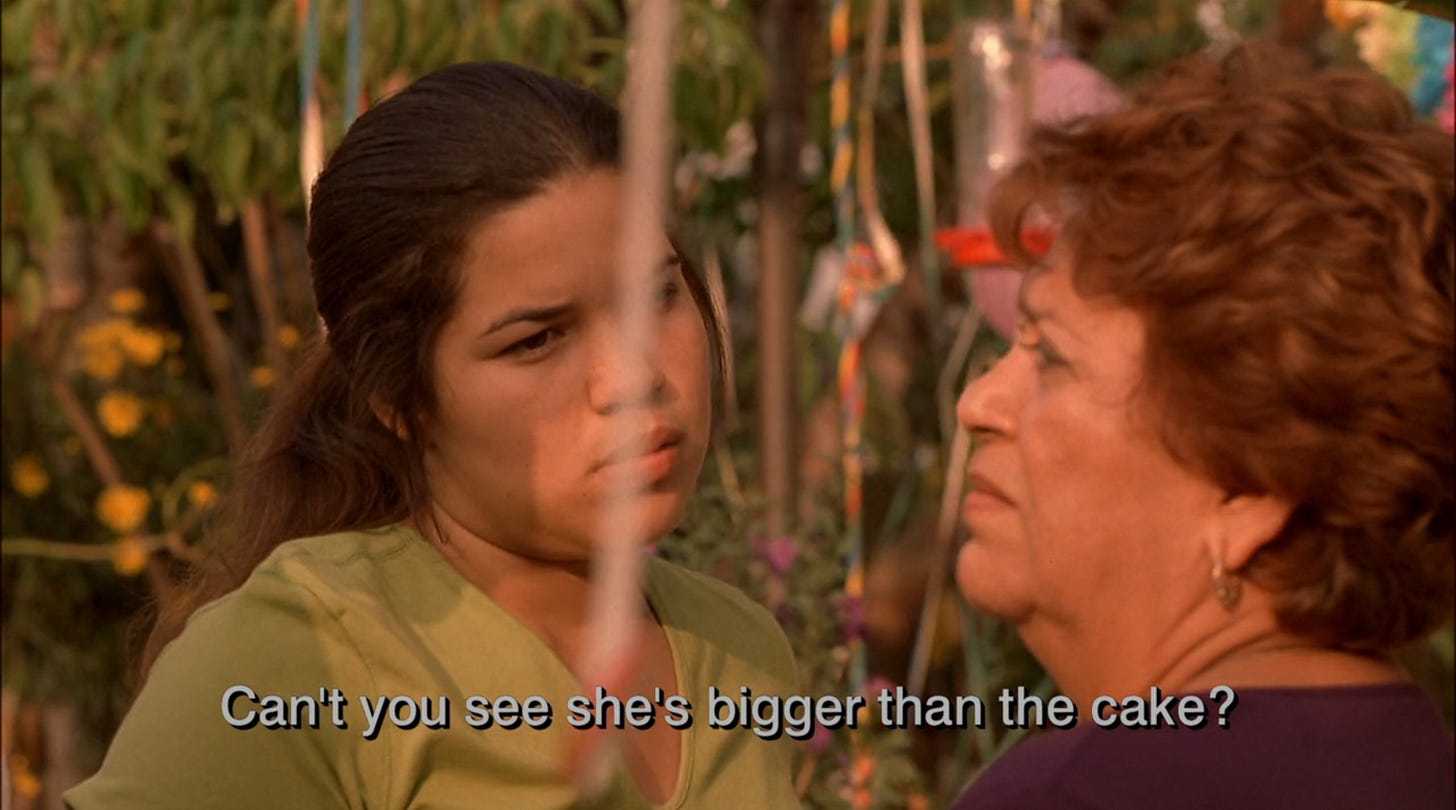




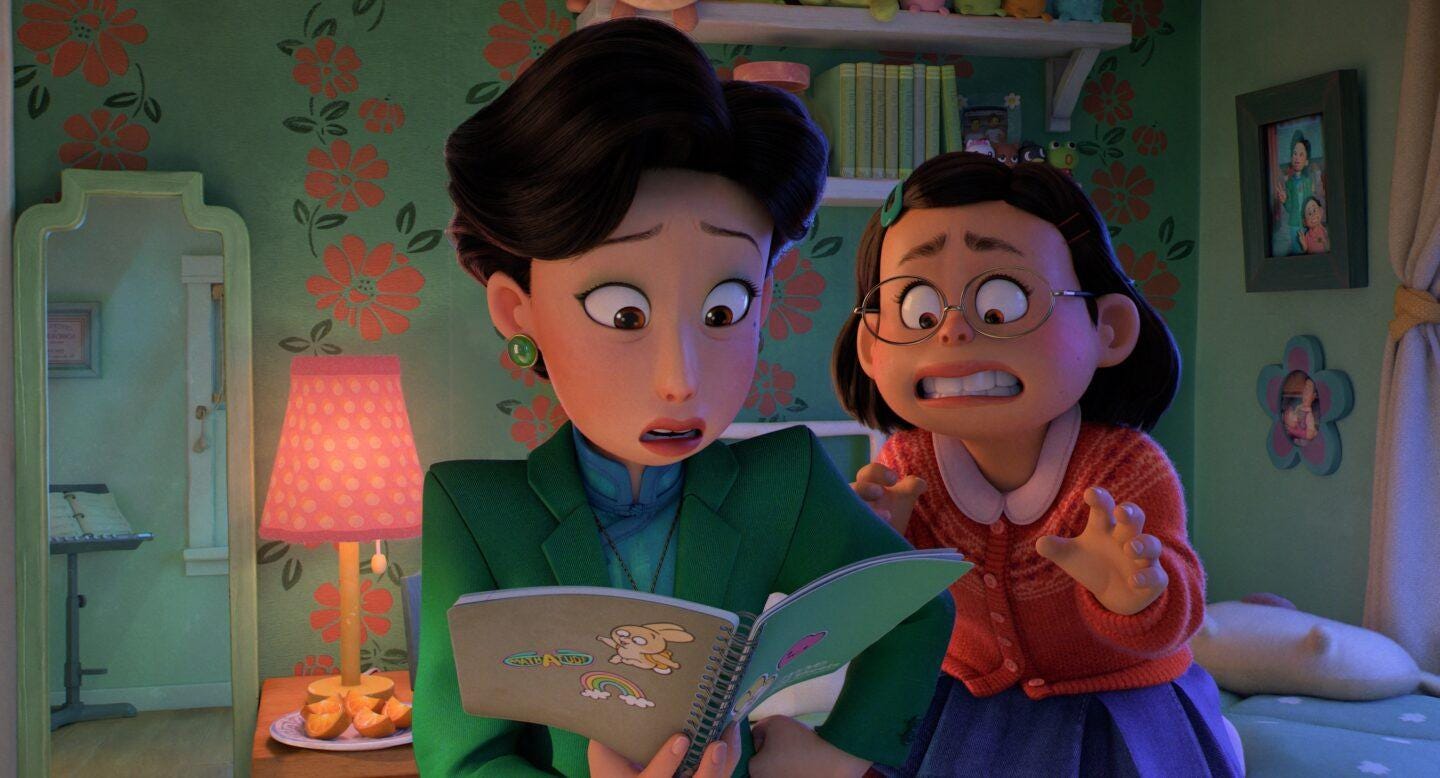



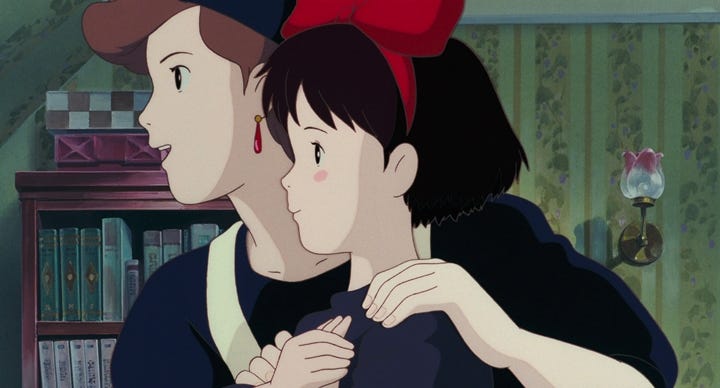

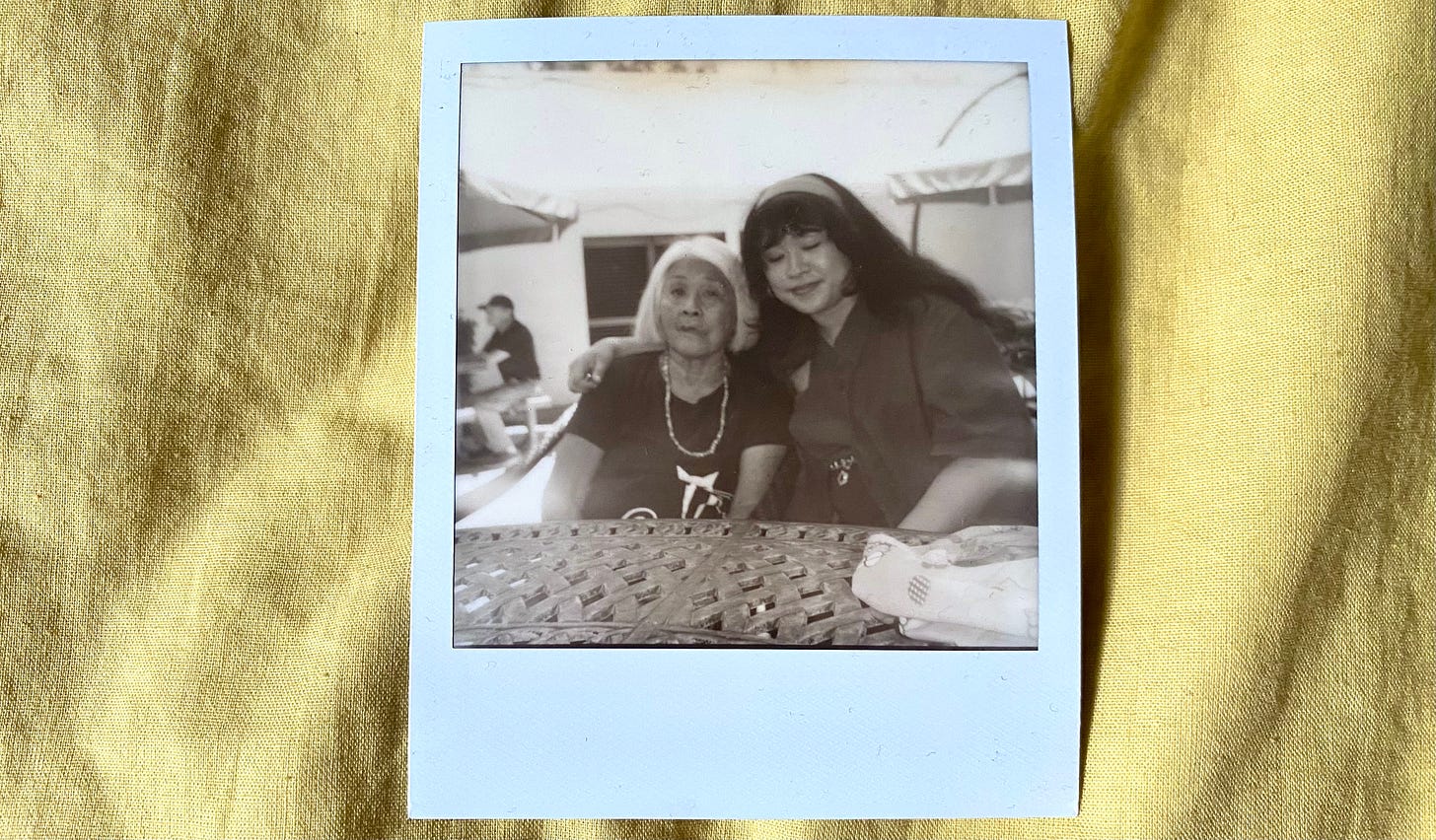



Iris- Thanks for sharing this. It's been a minute since I reflected on the parent-child, mother-daughter dynamic. Your writing is a beautiful reminder. Hope you're well this week. Cheers, -Thalia
i also have a strained relationship with my mom. we're not alone even if all those "best mom ever" posts makes it seem like we are lol. thanks for your vulnerability, adding all these books to my list <3